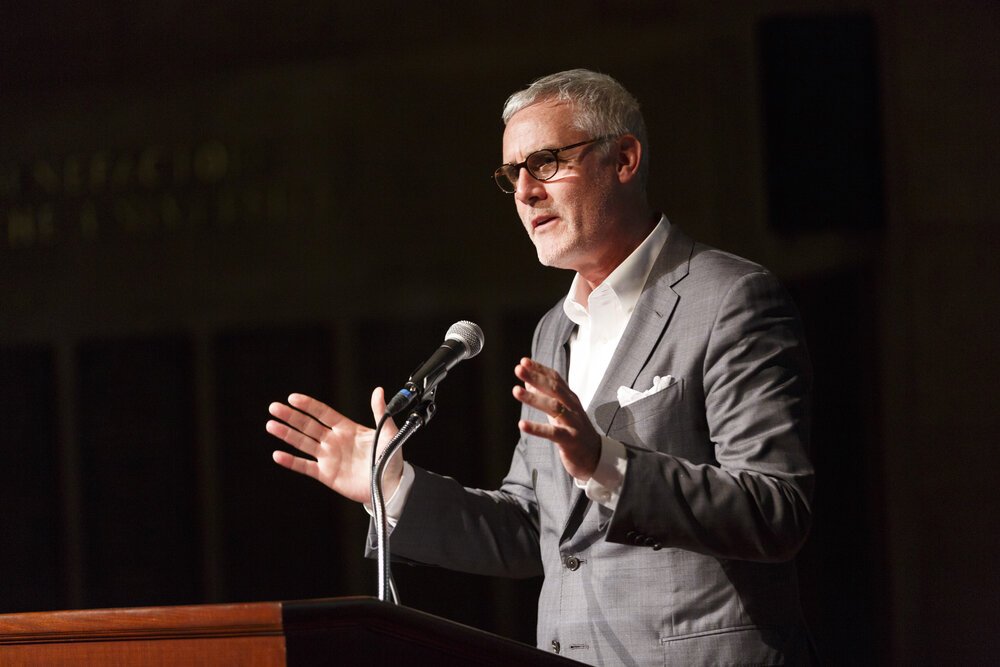Overcoming Toxic Polarization in our Schools with Peter Coleman (Ep. 12)
Episode Notes
Peter Coleman, a renowned expert on constructive conflict resolution, shares valuable insights about the sharp rise of polarization in America and the divisive culture wars that plague our schools. He is the author of the book, The Way Out: How to Overcome Toxic Polarization. After decades of political division, Coleman says Americans today are tired of the dysfunction and the toxic conflicts. “The good news,” he says, “is that most Americans - the exhausted majority - are fed up with the craziness…and are ready for something else.”
Coleman believes the culture wars in education are partly a function of America’s deepening polarization but also of deliberate, organized efforts by outsiders to promote conflict and fear and to oversimplify complex educational problems. In addition, people who have no power are frustrated because they spend most of their time listening to others in positions of authority. Those people “really need to be heard in order for their attitudes to shift.” One of the most useful things authority figures can do, Coleman says with a bit of a laugh, “is to shut up and listen.”
Coleman also urges school officials to focus on dialogue rather than debate. “[D]ebate is a game about winning and scoring points and ultimately walking away the winner…Dialogue is the opposite. Dialogue is a process of discovery, of learning, of listening, of hearing the other's story.” What schools may need, he suggests, “are chief listening officers [whose] role is to respectfully listen and collect information from people and then feed it back to the decision-making process.”
Despite the worrisome rise in polarization, Coleman is optimistic about the future. He believes coalitions are emerging to take back schools, workplaces, and communities from the extreme voices and the outsiders promoting their political agendas.
Related Reading & Cited Works:
Barbara Walter (2022), How Civil Wars Start and How to Stop Them, New York: Crown.
Amanda Ripley (2022), High Conflict - Why We Get Trapped And How We Get Out, New York: Simon & Schuster.
Amanda Ripley (March 4, 2019), “The Least Politically Prejudiced Place In America,” The Atlantic.
Phillip E. Tetlock and Dan Gardner, Superforecasting, New York: Broadway Books.
ABOUT PETER COLEMAN
Peter T. Coleman is Professor of Psychology and Education at Columbia University, where he holds a joint-appointment at Teachers College and The Earth Institute. Dr. Coleman directs the Morton Deutsch International Center for Cooperation and Conflict Resolution (MD-ICCCR), is founding director of the Institute for Psychological Science and Practice (IPSP), and is co-executive director of Columbia University’s Advanced Consortium on Cooperation, Conflict, and Complexity (AC4).
Dr. Coleman is a renowned expert on conflict resolution and sustainable peace. His current research focuses on conflict intelligence and systemic wisdom as meta-competencies for navigating conflict constructively across all levels (from families to companies to communities to nations), and includes projects on adaptive negotiation and mediation dynamics, cross-cultural adaptivity, optimality dynamics in conflict, justice and polarization, multicultural conflict, intractable conflict, and sustainable peace.
In 2018, Dr. Coleman was awarded the Peace Award from Meaningful World in celebration of their 30th anniversary and the UN’s International Day of Peace. In 2003, he became the first recipient of the Early Career Award from the American Psychological Association (APA), Division 48: Society for the Study of Peace, Conflict, and Violence, and in 2015 was awarded the Morton Deutsch Conflict Resolution Award by APA and a Marie Curie Fellowship from The European Union. Dr. Coleman edits the award-winning Handbook of Conflict Resolution: Theory and Practice (2000, 2006, 2014) and his other books include The Five Percent: Finding Solutions to Seemingly Impossible Conflicts (2011); Conflict, Justice, and Interdependence: The Legacy of Morton Deutsch (2011), Psychological Components of Sustainable Peace (2012), and Attracted to Conflict: Dynamic Foundations of Destructive Social Relations (2013). His most recent book, Making Conflict Work: Navigating Disagreement Up and Down Your Organization (2014), won the 2016 Outstanding Book Award from The International Association of Conflict Management.
Coleman has also authored over 100 articles and chapters, is a member of the United Nations Mediation Support Unit’s Academic Advisory Council, is a founding board member of the Gbowee Peace Foundation USA, and is a New York State certified mediator and experienced consultant. In 2017, he received the International Association of Conflict Management 2017 Best Conference Theoretical Paper Award for his article Conflict Intelligence and Systemic Wisdom: Meta-competencies for Engaging Difference in a Complex, Dynamic World. He also founded and edits the MD-ICCCR Science-Practice Blog, the WKCR (89.9 FM) monthly radio program Peace and Conflict at Columbia: Conversations at the Leading Edge, and is a frequent blogger on Huffington Post and Psychology Today. Dr. Coleman’s work has also been featured in media outlets such as The New York Times, The Guardian, The Chicago Tribute, Nature, Harvard Business Review, Forbes, Wired, This American Life, Time Magazine, Fox Business, CBS, Fast Company, Chicago Public Radio, and various international outlets.
Peter’s website: thewayoutofpolarization.com
Be sure to check out his TEDx MIA talk - "Why we are stuck - the attraction of a polarized America"
November 1, 2012











